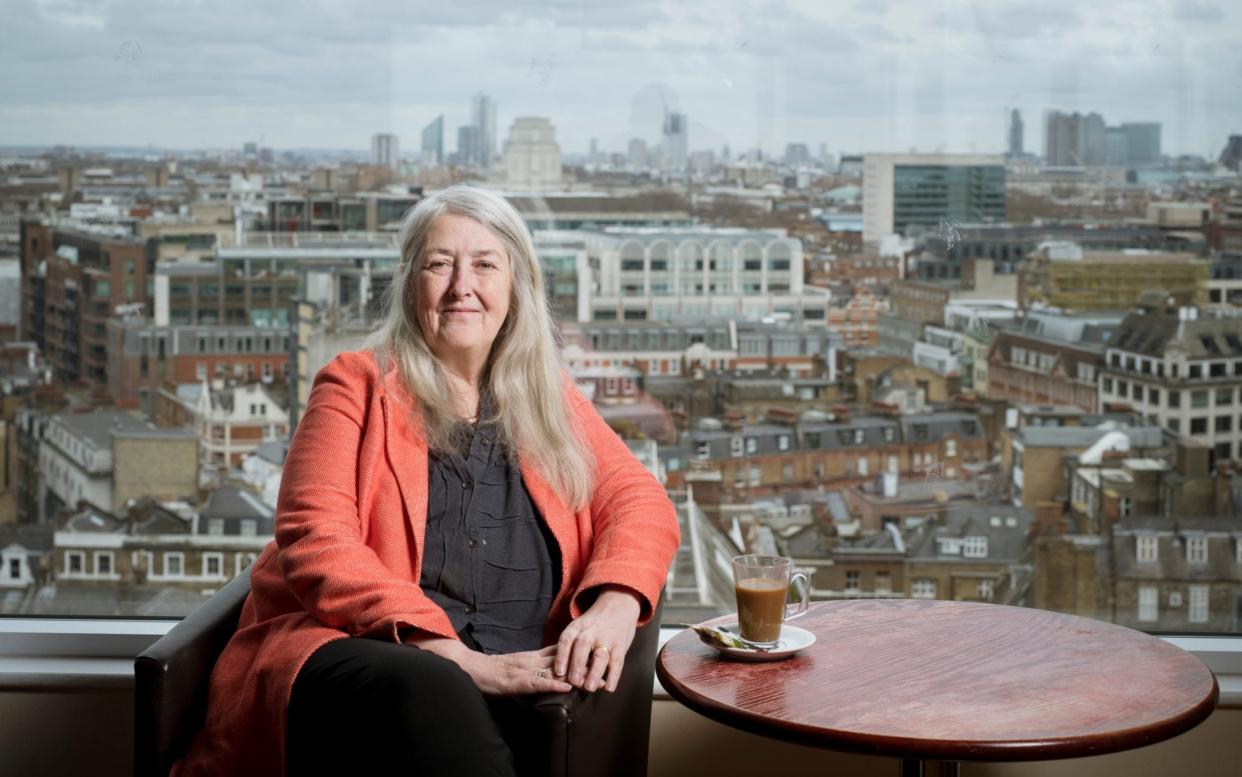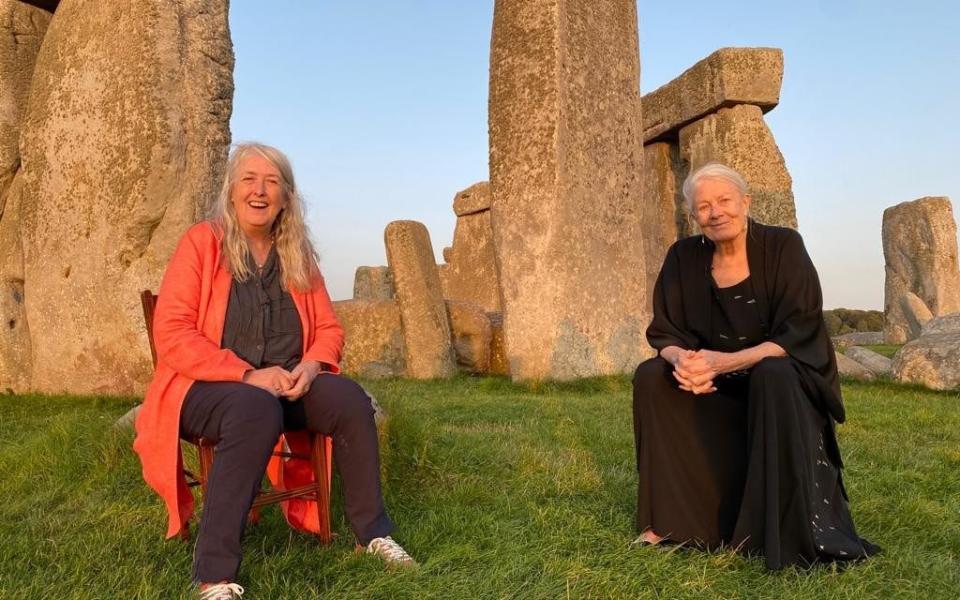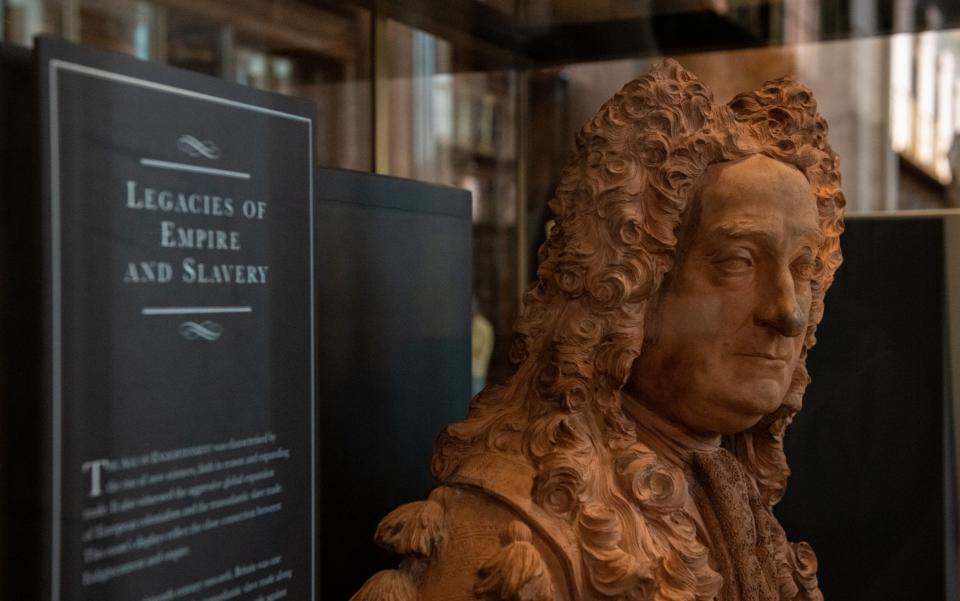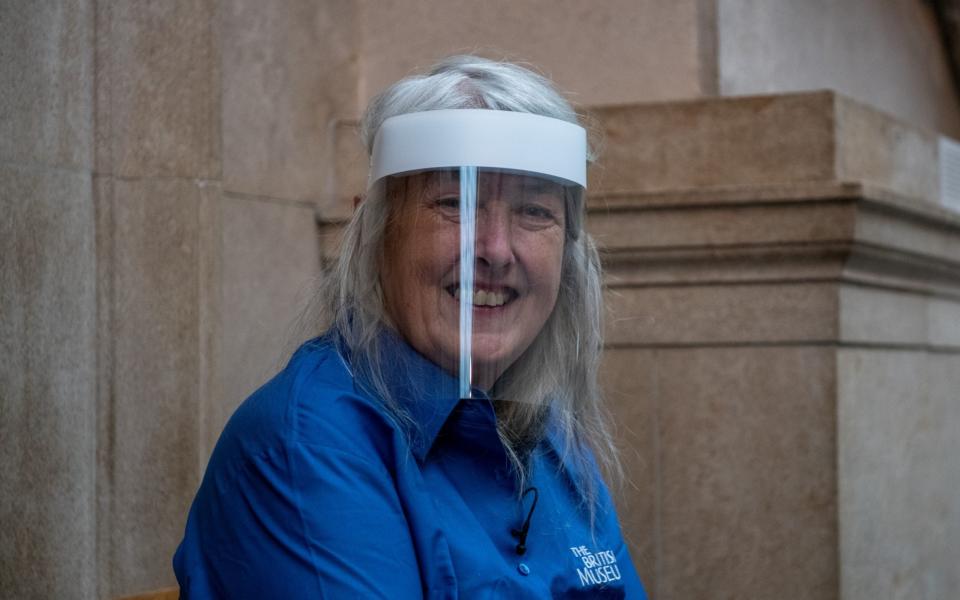Mary Beard interview: 'The job of students is to be a bit irritating'

Mary Beard returns to television tonight with a new show, Inside Culture, and she promises that filming the first episode on Stonehenge “was one of the most memorable days I’ve ever spent”.
Oh, you would say that, I think – but then she explains that a highlight was getting Vanessa Redgrave to recite a speech from Antony and Cleopatra, wandering among Somerset’s mythical 5,000-year old stones. “It’s a bit of a cliche,” says Prof Beard, 65, “but Stonehenge is an icon, Shakespeare is an icon, Redgrave is an icon.”
Well yes, but what about you? Aren’t you a venerable monument too? Sat in her library at home in Cambridge, she gamely titters this away. “I was very happy as a marginal observer…”
She doth protest too much. Beard is firmly woven into the fabric of modern British cultural life. Although her day job is still as a professor of Classics at Cambridge, she is better known for what she calls her “hobby”, her TV presenting, plus her books (SPQR, Women & Power, Pompeii), her hundreds of articles and her legendary Twitter spats. She is both deeply rational and unguardedly frank, which is the source of much of her charm. Not “marginal”, whichever way you cut it.
And not any less busy, despite lockdown. This spring she filmed a series, Culture in Quarantine, on her iPhone at home – she lives in a terraced house in Cambridge with her husband of 35 years, the retired art historian Robin Cormack. And she is there now, speaking to me via Zoom, the hair rigorously de-coiffed as always and a black-and-white print smock on.
The energy is “enlightened Druidess”, which makes her perfect for Inside Culture, a series that tries to take a considered view of today’s fraught cultural debates, and perfect for Stonehenge too.

It seemed like a logical place to start, she says, first because we’ve all been appreciating the great outdoors since the pandemic began, but also because “it’s extraordinarily but fascinatingly controversial. It seems always to be a site for disputes, whether it’s what it was made for, how it should be managed and of course, what that blessed road is doing running so close to it. And that’s what symbols are, things that people fight over.”
She still recalls the first time she ever went to Stonehenge, taken by her father as a small child (Beard grew up in Shrewsbury, the only child of a raffish architect and a headmistress mother). “It wasn’t at all like it is now,” she says. “There was a little wicket gate, and the guy took some money, and you just wandered around.”
“What is great about Stonehenge is that it doesn’t belong to anybody,” she adds. “It doesn’t belong to any bit of history. We don’t even really know how old it is. And that makes it great, because it’s sort of strangely nonpartisan as a symbol of Britishness. It certainly has no connection with Empire, whoever built it!”
Ah yes, empire. The reference is apt, not only because it’s Beard’s speciality, focusing on the Roman sort, but because it has been one of the great buzzwords of the summer, thanks to the recent Black Lives Matter protests. Does this come up in Inside Culture at all? Beard explains that they have filmed the reopening of the British Museum, which despite itself has become a focal point for concerns about colonialism, “looting” and the restitution of objects, from the Elgin Marbles to the Benin Bronzes.
Full disclosure: she has recently become a trustee of the BM, so she’s hardly going to knock it. “The combination of lockdown and Black Lives Matter didn’t cause a relook at some of the collections, it sped that up – it made it more urgent,” she says.
“A lot of museums have been doing stuff about ownership and imperialism for a long time – but it got an extra drive.” At the BM, a bust of founding father Hans Sloane was redisplayed to better reflect his links to the slave trade.

As for the Elgin Marbles, she says she has a “big uncomfortable line across my bum where I’m on the fence” but, nevertheless, sounds resigned to them eventually going elsewhere. “Objects are moved around all the time, and they will go on moving around, and they’ll move from one place to another. Somehow the idea that there is a gelatinous fix, and nothing will ever go… we’ve got to get over that.”
I steer the conversation back to the events of this summer. Are people too critical of empires? Are we being too simplistic? “I think that history is often treated too simplistically, across the board,” she settles. “And that’s not just about the Empire, it’s not just about colonialism. I’ve worked all my life on Greeks and Romans, and the idea of saying they were either good or bad is faintly ridiculous. They did some truly awful things, and yet they have given us material, ways of thinking about stuff, that is absolutely essential.”
She sighs a bit more. “What professional historians can do is to make things less simple. My job description, in a sentence, is to make things more complicated.”
I also ask what she thinks of that persistent characterisation of her current generation of students as woke, snowflakey, safe-spacey no-platforming bed-wetters. She admits she does sometimes get “irritated” by their attitudes, but adds with her trademark reasonableness: “The job of students is to be a bit irritating. You know, I was. That’s what they’re there for!”
She is similarly sanguine about her series of sagas on Twitter, where she has often been bombarded with misogynist and ageist abuse. “Yes,” she ponders. “I was a bit of a lightning conductor for largely, I think, sad people’s aggression. People behave quite badly on Twitter - no doubt I behave quite badly sometimes too.” Yet she never gives up and responds to so many people, whether abusive or effusive. “For me, the profit-loss account generally comes out in favour.”
Clearly Beard is a glass-half-full sort of person. She is hoping there will be some positive changes in society thanks to the pandemic, similar to the way in which the NHS rose from the ashes of the Second World War, but then she doesn’t want to be too rose-tinted about this era. “Sadly, pandemics haven’t usually produced many positive effects,” she says.

Meanwhile, she has plenty to occupy her, not least the latest book she has started writing, a kind of sequel to SPQR which again takes up the theme of emperors. “How can we get beyond ‘Nero was a baddie who did terrible things’?” she muses. People often make crude comparisons between the leaders of then and the leaders of now – is that fair? She smiles with a benign disappointment.
“The commonest question I get from journalists is, ‘Dear Prof Beard, can you tell me what Roman emperors you think Donald Trump is most like?’” Oh dear. “Roman history isn’t a sort of supermarket full of comparisons you can take off the peg and feel better, right? The whole notion of the autocratic leader is simply non-comparable.”
However, when she doesn’t have time to explain all the factors that make such a task so complicated, she just “names an emperor they haven’t heard of.”
“Then at least they’ve got to go to Wikipedia!” she twinkles. “So I usually name Elagabalus, and you can look him up later too.”
Which I promptly do, once she’s rung off. Elagabalus, sometimes Heliogabalus, “developed a reputation among his contemporaries for extreme eccentricity, decadence, and zealotry”, reads the entry, which sounds Trump-like; but then he is also considered “an early transgender figure”, which really does not.
Who knows how serious Beard was being, then. It does feel very her, though: a surprising, searching answer, a cheeky provocation from her precarious position on the fence.
Inside Culture begins tonight on BBC Two at 7.30pm


